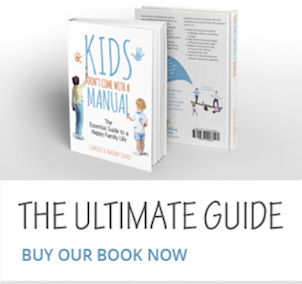Children seem to come with so much stuff, which they then mess up…. And guess who is expected to do the tidying up? The good news is that with a little help from us children can learn to take responsibility for their stuff, and give a hand around the house, from a relatively early age (think toddler)!
Here is a sample of some of our easy and effective tools for solving this issue:
This works really well:
ENERGY DRAIN:
- Tell your child: “This situation is causing me an energy drain, I’ll need your help clearing-up in order that I can get some energy back for having fun with you later on.”
- Explaining that a situation is draining us of energy allows our children to realise that their actions affect others.
- The energy drain concept also includes the idea that through helping us our children can quickly restore us to fully working order! A neat lesson in cause and effect and how to take responsibility for making amends and turning a situation around.
Here is another suggestion:
GIVE A CHOICE
- Ask your child to choose between two tasks for example “Would you like to throw away the rubbish or empty the bins?”
- When we ask children to make decisions we demonstrate that we are trusting them enough to be able to make a choice.
- Children like being given a sense of control, it makes them feel ‘grown up’ and responsible.
- Giving a child a choice gets them used to making decisions.
You can also try this:
PLAN AHEAD:
- Disorder breeds disorder, but if you both have a good tidy-up strategy you can soon make this plan the boss, rather than you.
- Encourage your children to be systematic; rather than emptying all their toys on to the carpet, teach them to play with them one by one.
- Some parents find it helpful to ‘rotate’ toys.
These are just a few examples of our Best of Parenting Tools. You can find more ideas and solutions to typical parenting challenges in our book ‘Kids Don’t Come With a Manual – The Essential Guide to a Happy Family Life‘.












































